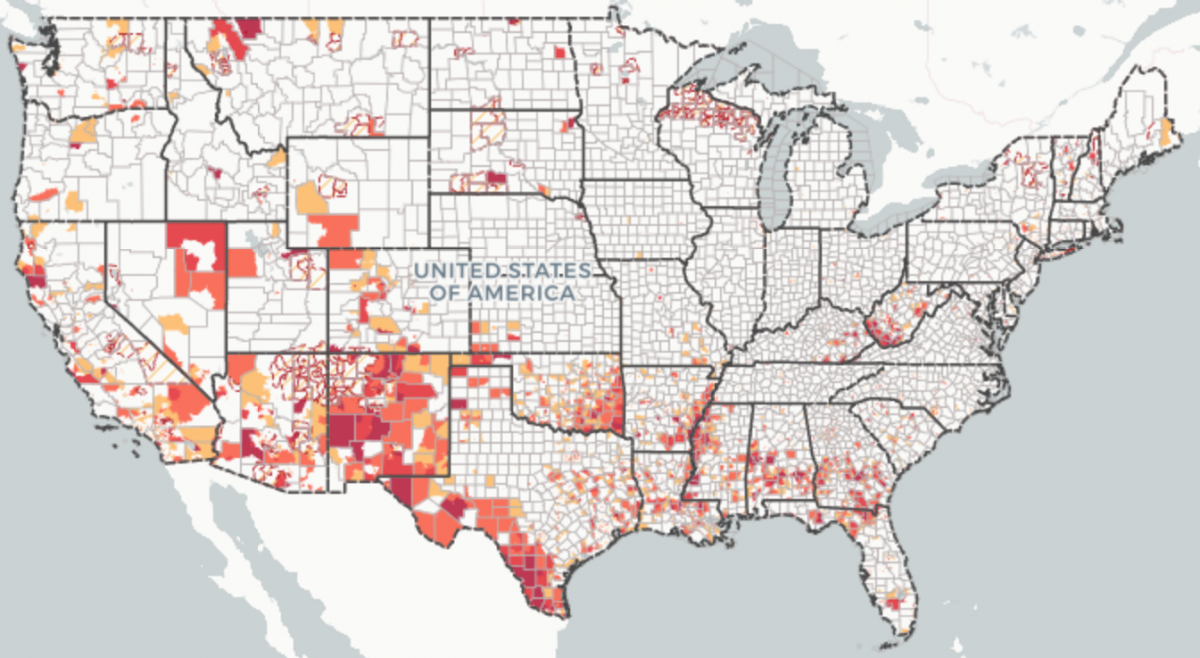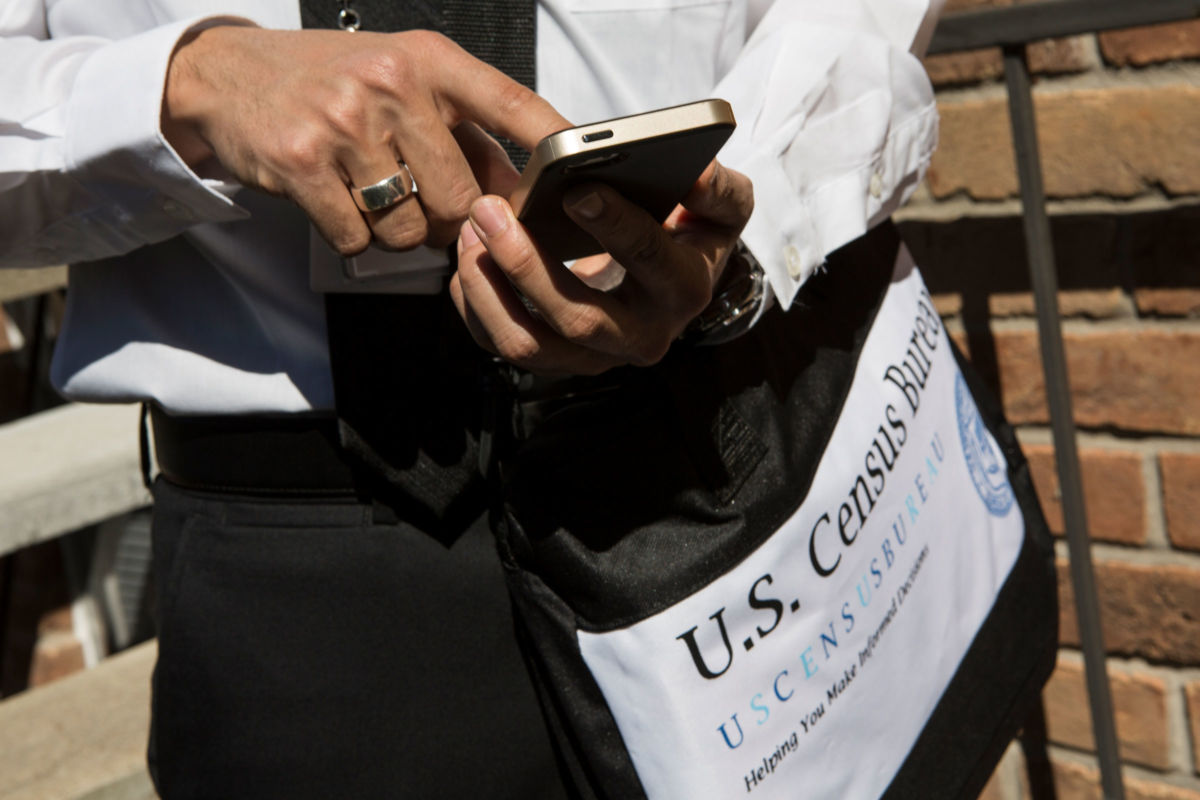Truthout is a vital news source and a living history of political struggle. If you think our work is valuable, support us with a donation of any size.
The U.S. census is just about eight months away. As the once-a-decade population count looms, some states are deploying multimillion-dollar efforts to ensure their population gets counted correctly so they don’t miss out on the federal funding and congressional seats determined by census data.
Outreach is especially important in 2020 because it’s the first time the census will be conducted primarily online, which comes with particular challenges for communities without adequate internet access, and because of the impact of the proposed citizenship question, which has been struck from the census but still threatens to depress participation in immigrant communities.
Census outreach efforts vary significantly from state to state. Each state usually has at least one Complete Count Commission to coordinate statewide promotional and educational efforts for the census; many cities, counties, or other localities are forming commissions and setting aside funds as well. California, for instance, has allocated over $100 million in state funding for the census, while the New York City Council and mayor’s office have pledged to jointly invest $40 million to ensure every resident is counted.
But in the South, state governments have for the most part shrugged off responsibility for the census, leaving nonprofits and community-based organizations struggling to fill in the gap.
“In the South, we tend to lag,” Kara Wilkins, the coordinator of Arkansas Counts, a statewide commission led by philanthropies, told Facing South. “When we have an undercount, that’s a loss of money that’s coming into our state, which means that’s a lack of people receiving services, which is why we end up being 49th and 50th in all these things.”
Without a budget to employ coordinators, create promotional materials, set up websites, or host events, it’s hard for either government or community-led commissions to do their work. Seven state governments in the South — Alabama, Georgia, Kentucky, Mississippi, North Carolina, South Carolina, and Virginia — have created state-level, government-led Complete Count Commissions, while West Virginia has said it plans to do so. But only three of those states have allocated any state funding for census outreach:
-
- The Alabama legislature allocated $1 million for a grant program that will fund local outreach efforts and another $240,000 for state-level census work.
- Georgia lawmakers set aside $1.5 million in the state budget for census-related work and an additional $2.25 million in appropriations for county and city planning work, including annexation reports provided to the Census Bureau.
- In Virginia, the legislature set aside $115,000 to work on updating the address list that will be used to distribute the census but failed to pass an appropriations bill with additional census funding. That prompted Gov. Ralph Northam (D) to authorize up to $1.5 million from the state’s economic contingency fund to assist the state’s commission.
In North Carolina, which has the only legislature in the South still in session this year, Democratic Gov. Roy Cooper’s proposed budget included $1.5 million in funding for census outreach and education. But that money was stripped from the budget passed by the Republican-controlled legislature, which is now stuck in political limbo after Cooper vetoed it because it didn’t include Medicaid expansion.
Texas, the second-most populous state in the country, has also refused to put any state resources into ensuring an accurate count. Bills in the legislature that would have earmarked funds didn’t even get a hearing. There were allegations that the Republican-controlled legislature knew it would benefit politically from an undercount, especially in heavily Latinx parts of the purple state, and didn’t want to invest in the census for that reason.
So, in Texas, as in other states across the South, nonprofits and community organizations are stepping in. But even with philanthropic money, the community-led commissions can’t come close to doing what a state-level commission could.
“There’s no way it can be the same, because we don’t have the resources,” said Ann Beeson, the executive director of the Austin, Texas-based Center for Public Priorities, which is leading a coalition of organizations across the state working to distribute census information. While many of Texas’s largest cities, including El Paso and Houston, are putting significant resources into census work locally, there’s not as much money or manpower in the more rural and even suburban parts of the state, Beeson said — and those tend to be the areas hardest to count.
State commissions also need money or other resources to offer local groups whose help they need to reach out to communities. “You’re asking them to engage,” said Danielle Clore, the director of the Kentucky Nonprofit Network, which is heading up that state’s commission. “That is a sector that is already stretched to the limit.”
Clore said the Kentucky coalition has had a hard time securing any funding from the state, philanthropies or business partners. “We’re not taking it seriously,” she said of Kentucky. “We’re just not pouring even remotely the same kind of resources in” as other states.
While that’s frustrating for her, it has serious implications for the state’s residents. Funding for a wide variety of government programs is based on Census Bureau data, affecting the distribution of money for everything from social safety-net programs to infrastructure, education, and disaster relief grants. Clore pointed out that if the state’s federal funding for social services falls short as a result of an undercount, it will fall to nonprofits to fill in the gap — something that’s true for states across the South.
In Arkansas, a coalition of state-level philanthropies called Arkansas Impact Philanthropy came together with three other statewide public interest groups to create the Arkansas Counts commission, which is focused on distributing information about the census and reaching hard-to-count regions. The effort has gotten funding from the national Census Equity Fund, which provides resources for hard-to-count regions and states. But the coalition would like more help, particularly in the form of a state-level commission. “We welcome it, we encourage it, we hope that it happens,” said Wilkins. “It helps give some legitimacy to the census and why it’s important.”

Adequate resources for census outreach are especially a concern for the hard-to-count communities across the Black Belt, the Arkansas-Mississippi Delta, rural Texas, and parts of Appalachia, where significant undercounts of rural and minority populations could have dire effects on the federal resources flowing to those communities. Even though the U.S. Supreme Court struck President Trump’s proposed citizenship question from the 2020 census, immigrant communities under political attack amid rising white nationalism remain apprehensive about the upcoming count. In other places where there is distrust of the government, including the Black Belt, trusted religious, community, or nonprofit leaders can help convince people to fill out the form, said Beeson.
Rural areas that in the South are home to a high proportion of racial and ethnic minorities are facing another difficulty: internet access. The 2020 census will be conducted primarily online, and broadband access in the rural South is spotty. To address this, the Arkansas Counts group is partnering with local businesses, schools, and libraries to set up census kiosks in community spaces with high traffic. For instance, they’re working with meat-processing giant Tyson Foods to place stations in 20 plants for employees to fill out the census. Similar efforts are underway in other states.
But without state resources, it will be difficult to ensure that every community gets what it needs for an accurate count.
“We have to do some of that front end work, and that front end work is going to help us impact the back end,” said Wilkins. Southern states, she noted, “are not moving forward as quickly as some of our other state counterparts, and that’s disheartening.”
Holding Trump accountable for his illegal war on Iran
The devastating American and Israeli attacks have killed hundreds of Iranians, and the death toll continues to rise.
As independent media, what we do next matters a lot. It’s up to us to report the truth, demand accountability, and reckon with the consequences of U.S. militarism at this cataclysmic historical moment.
Trump may be an authoritarian, but he is not entirely invulnerable, nor are the elected officials who have given him pass after pass. We cannot let him believe for a second longer that he can get away with something this wildly illegal or recklessly dangerous without accountability.
We ask for your support as we carry out our media resistance to unchecked militarism. Please make a tax-deductible one-time or monthly donation to Truthout.
